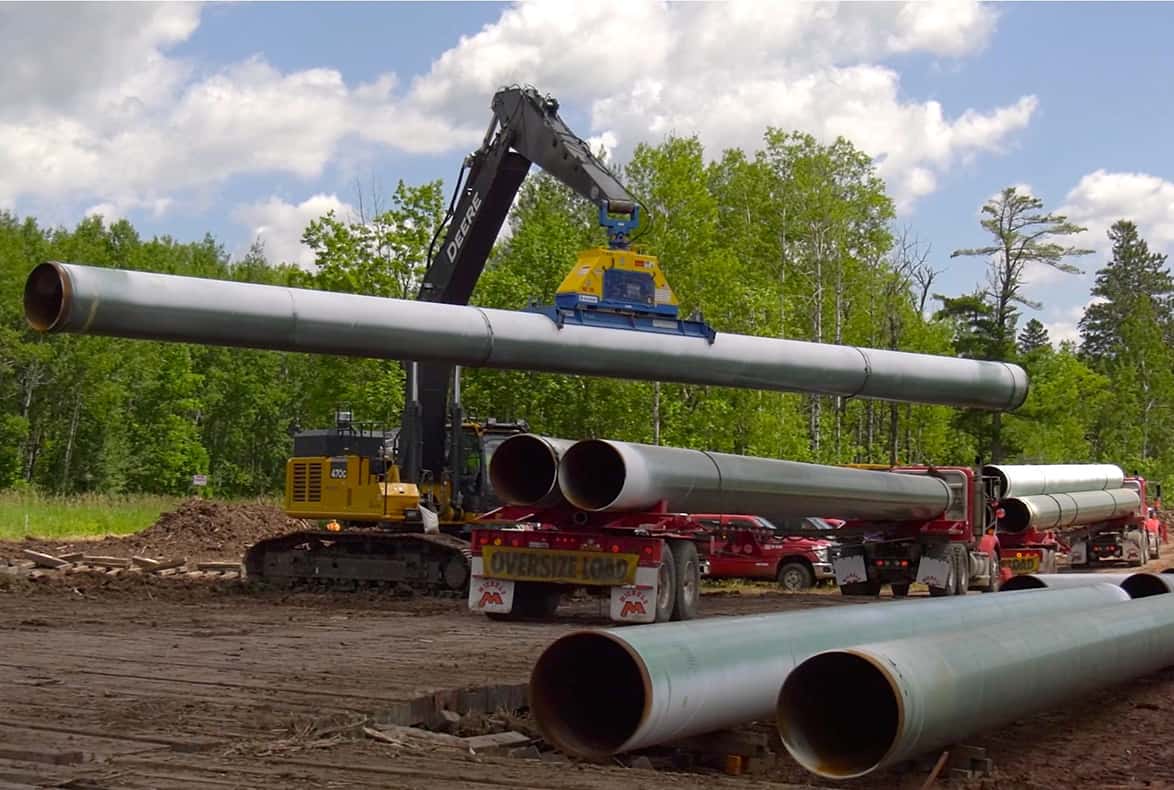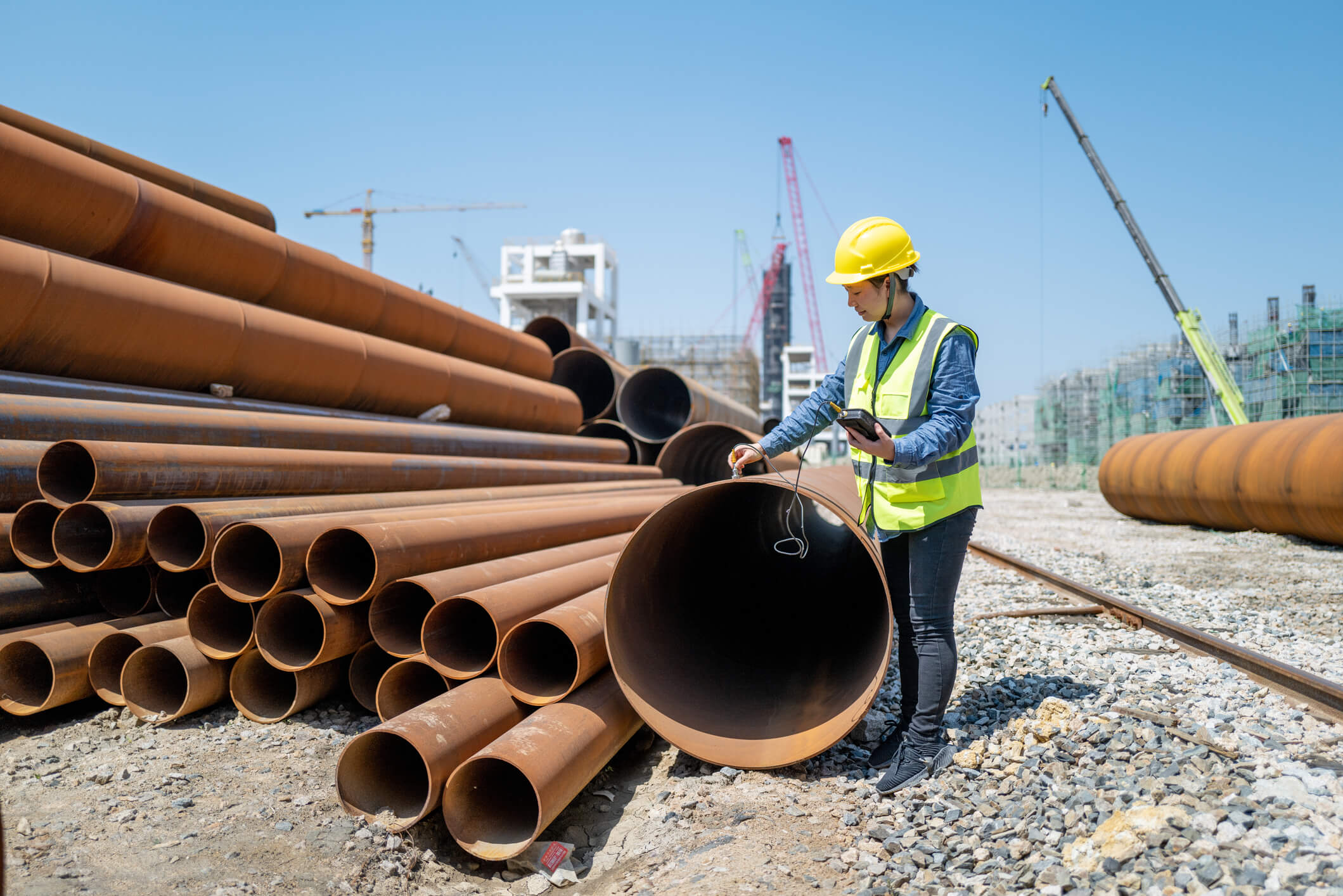Understanding the Secret Attributes of Pipeline Providers and Their Influence on Effectiveness
Pipeline solutions play a vital function in numerous sectors, influencing functional effectiveness substantially. Secret features, such as innovative monitoring modern technologies and upkeep approaches, are important for decreasing downtime. In addition, regulative compliance assurances security and ecological defense. The interaction in between layout, infrastructure, and economic factors can make complex these processes. Comprehending just how these aspects effect overall performance increases essential inquiries concerning ideal methods and future advancements in the field.
The Function of Modern Technology in Pipeline Tracking
As developments in modern technology remain to progress, the relevance of efficient pipeline monitoring has actually become significantly apparent. Modern pipe systems count on innovative monitoring tools that enhance operational effectiveness and security. Technologies such as real-time information analytics, sensors, and drones offer drivers with prompt understandings right into pipe problems, allowing them to detect leakages, corrosion, and various other possible concerns prior to they intensify right into considerable problems.
The integration of Net of Points (IoT) devices has changed conventional surveillance techniques, enabling for constant monitoring and automated reporting. This proactive method not only decreases risks but likewise enhances upkeep schedules and source allotment. Additionally, progressed software application platforms assist in data visualization and analysis, encouraging decision-makers to respond promptly to anomalies. Jointly, these technological innovations not only boost pipe integrity however also foster environmental stewardship by alleviating the prospective effect of leakages and spills.
Upkeep Methods for Boosted Performance
Efficient maintenance strategies are crucial for enhancing pipeline effectiveness. Executing predictive maintenance methods, adhering to routine assessment methods, and creating robust emergency situation reaction strategies can substantially boost functional dependability. These techniques not only reduce downtime however additionally add to the general safety and integrity of pipe systems.
Predictive Maintenance Strategies
Predictive upkeep methods are significantly recognized for their capability to enhance operational performance in pipe solutions. By leveraging data analytics and monitoring innovations, these methods make it possible for drivers to anticipate tools failings before they take place. This proactive approach lessens unplanned downtime, minimizes upkeep expenses, and prolongs the lifespan of crucial properties. Sensing units and IoT tools play a crucial duty in collecting real-time information, enabling the assessment of devices wellness and performance fads. Device knowing formulas assess this information to recognize patterns and predict possible problems. Consequently, pipe operators can arrange upkeep activities throughout non-peak times, maximizing resource allocation and guaranteeing continuous procedure. Inevitably, the adoption of anticipating upkeep promotes an extra reliable and reliable pipe facilities.

Regular Evaluation Protocols
Regular assessment procedures act as a foundation of upkeep methods targeted at boosting performance in pipe operations - Midland oilfield pipeline services. These protocols entail organized assessments of pipe stability, concentrating on detecting prospective issues prior to they escalate. Regular evaluations normally include visual evaluations, leakage discovery modern technologies, and stress monitoring to assure peak efficiency. By adhering to well-known routines, drivers can identify deterioration, product wear, or blockage, consequently lessening downtime and repair work expenses. Additionally, data accumulated throughout inspections can educate predictive upkeep initiatives, enabling a positive method to pipeline administration. Inevitably, regular assessments not only prolong the life expectancy of pipeline framework yet likewise add to safer and a lot more reliable transport of resources, reinforcing total functional performance
Emergency Situation Feedback Preparation
Emergency situation response planning is necessary for preserving effectiveness in pipeline operations, making certain that operators are prepared to deal with unpredicted events swiftly and properly. A well-structured emergency reaction plan includes clear methods, marked roles, and interaction methods to reduce threats connected with pipe failings. Regular drills and training improve team preparedness and acquaint employees with emergency treatments. In addition, having easily available resources, such as spill control tools and emergency situation call checklists, can greatly decrease action times. By integrating real-time surveillance technologies, drivers can promptly determine and respond to problems, decreasing ecological impact and functional downtime. Eventually, a thorough emergency reaction plan not only safeguards assets and personnel however additionally enhances the total effectiveness of pipeline services.
Regulatory Compliance and Security Specifications
Regulatory compliance and security standards play a necessary role in the pipeline services market. Midland pipeline construction company. Abiding by sector regulations guarantees that business implement efficient security procedures and take the chance of administration techniques. This dedication not only secures personnel and the environment but additionally improves general operational performance
Compliance With Market Laws
Compliance with sector laws is vital for ensuring the safety and security and performance of pipeline procedures. Regulatory structures, such as those developed by the Epa (EPA) and the Pipeline and Hazardous Products Safety Administration (PHMSA), set rigorous requirements that drivers must follow. These policies cover numerous facets, including pipe style, building and construction, upkeep, and monitoring, guaranteeing that systems operate safely and successfully. Non-compliance can cause severe penalties, functional delays, and ecological dangers. By adhering to these laws, pipe business not just shield public security and the environment yet likewise improve their operational performance. Eventually, regulative conformity promotes count on amongst stakeholders, guaranteeing that pipe solutions can operate effortlessly in an affordable landscape while meeting lawful obligations.

Safety And Security Procedure Implementation
Reliable safety and security procedure application is a crucial element of pipe operations, closely linked to governing conformity and safety and security criteria. Sticking to these methods not just assures the protection of personnel yet additionally safeguards the environment and framework. A robust safety and security structure includes routine training, complete inspections, and making use visit this website of appropriate safety and security equipment. Organizations needs to remain attentive in upgrading their methods to show adjustments in guidelines and why not check here technical developments. Conformity with established safety requirements minimizes the threat of mishaps and improves functional performance. Additionally, a society of safety and security fosters staff member engagement and liability, contributing to total organizational success. Eventually, reliable safety and security method execution is critical in maintaining the honesty of pipe solutions and accomplishing long-lasting sustainability in operations.
Threat Administration Methods
Executing durable danger monitoring methods is essential for assuring that pipeline operations stick to regulatory demands and safety requirements. Organizations should recognize possible hazards and assess dangers connected with pipe tasks. This entails carrying out complete evaluations, using innovative monitoring technologies, and keeping compliance with sector regulations. Routine training for personnel on safety and security methods improves situational understanding and prepares groups to respond effectively to emergency situations. Furthermore, creating backup strategies and conducting drills can substantially alleviate threats. Collaborating with governing bodies guarantees placement with evolving safety and security criteria. By focusing on danger monitoring, pipe services can enhance functional efficiency while protecting both the setting and public safety and security. Inevitably, a proactive method to risk management promotes a culture of security within the market.
Pipeline Layout and Framework Considerations
Just how can the design and framework of pipelines influence overall operational efficiency? The arrangement of pipes plays an essential function in establishing their effectiveness. Effective layout decreases rubbing losses, therefore lowering power intake during fluid transportation. Aspects such as diameter, material selection, and layout directly effect circulation rates and upkeep requirements.
In addition, critical positioning of shutoffs and monitoring systems boosts operational control and safety and security. Midland pipeline construction company. Framework considerations, including ease of access for upkeep and fixing, significantly affect downtime and overall efficiency
Incorporating sophisticated technology for real-time monitoring assists in punctual detection of leaks or ineffectiveness, making certain speedy reactions to concerns. The overall structural integrity, affected by product durability and environmental aspects, additionally forms long-lasting functional success. Thoughtful style and robust infrastructure are essential for making best use of pipeline effectiveness, ultimately adding to the reliability and profitability of pipeline services.
Environmental Effect and Sustainability Practices
While the need for pipe solutions proceeds to grow, comprehending the ecological effect and taking on sustainability practices has actually become increasingly essential. The building and procedure of pipes can especially impact ecosystems, wild animals environments, and water resources. To reduce these impacts, companies are applying sophisticated innovations and practices intended at decreasing discharges, stopping spills, and reducing home land disturbance.
Sustainability campaigns commonly consist of using eco pleasant materials, boosting energy efficiency, and using renewable resource sources to power procedures. Furthermore, companies are progressively conducting thorough ecological assessments prior to project initiation, ensuring conformity with guidelines and stakeholder engagement.
Cost Management and Financial Elements in Pipeline Solutions
As the pipe industry grows, efficient cost administration and understanding financial factors end up being vital for keeping competition. Firms deal with various economic pressures, consisting of fluctuating material prices, labor costs, and regulatory conformity costs. To navigate these obstacles, pipeline solution suppliers need to adopt calculated monetary planning and budgeting methods.
Spending in innovation can boost operational efficiency, inevitably lowering costs gradually. Furthermore, reliable task administration guarantees that resources are alloted effectively, lessening delays and unanticipated costs.

Market problems, such as need for energy and geopolitical elements, likewise affect economic practicality. Business have to stay agile, readjusting their methods in feedback to these exterior aspects.
Often Asked Inquiries
What Are the Different Sorts Of Pipeline Provider Available?
Numerous sorts of pipeline services include transport, storage space, upkeep, inspection, and repair. Each service plays a vital role in making certain the smooth movement of materials, enhancing security, and decreasing functional disturbances throughout different industries.
Just How Frequently Should Pipeline Inspections Be Performed?
Pipeline assessments ought to be performed consistently, generally every one to three years, relying on the type and condition of the pipeline. More constant assessments might be needed for older or risky pipelines to assure safety and stability.
What Are the Main Causes of Pipeline Failings?
The main reasons for pipe failings consist of deterioration, damaged construction, product problems, outside damage, leakages, and operational mistakes. Each variable adds significantly to prospective risks, highlighting the relevance of routine maintenance and monitoring for safety.
Exactly How Can Firms Boost Pipeline Service Integrity?
Companies can enhance pipeline solution dependability by applying routine maintenance routines, using sophisticated tracking technologies, carrying out comprehensive examinations, purchasing worker training, and adopting proactive danger administration methods to anticipate and reduce potential failings.
What Duty Do Operators Play in Pipeline Providers?
Operators play a crucial role in pipe services by making sure secure transportation, keeping equipment, checking system integrity, coordinating maintenance, and reacting to emergency situations. Their know-how straight influences functional efficiency and decreases interruptions in service delivery.